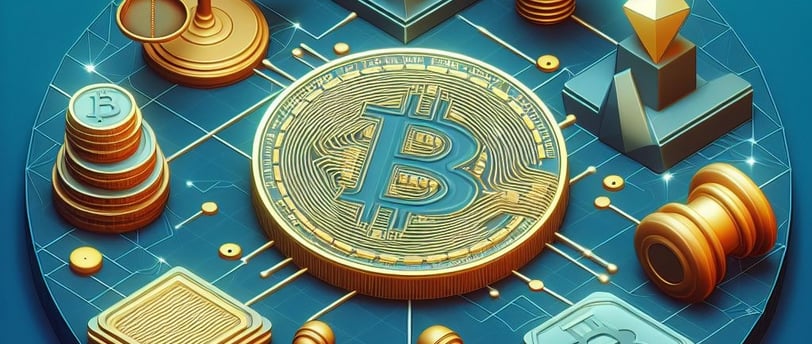How Does Cryptocurrency Affect Intellectual Property Rights?


Introduction
Cryptocurrency, such as Bitcoin, has revolutionized the financial industry and is now making waves in other sectors as well. One area that is being significantly impacted by this digital currency is intellectual property (IP) rights. In this article, we will explore the implications of cryptocurrency on IP rights, including copyright, patents, and the evolving legal landscape.
The Rise of Cryptocurrency and its Impact on IP
Blockchain technology, the foundation of cryptocurrencies, has introduced a decentralized and transparent system for recording transactions. This technology has the potential to transform the way IP rights are protected and managed.
One of the key areas where cryptocurrency is challenging traditional concepts of IP is copyright. With the rise of digital currencies, creators are finding new ways to monetize their work. Cryptocurrencies enable creators to directly sell their digital assets, such as music, art, or writing, without the need for intermediaries. This disintermediation has the potential to disrupt traditional copyright systems and empower creators with greater control over their intellectual property.
Similarly, the patent system is also being affected by cryptocurrency. Blockchain technology allows for the creation of decentralized applications (DApps) and smart contracts. These applications can enable inventors to securely store and manage their patent-related information. Additionally, blockchain can provide a tamper-proof record of the creation and ownership of inventions, potentially streamlining the patent application process and reducing the risk of patent disputes.
The Legal Landscape and Digital Asset Protection
As cryptocurrencies gain popularity, governments and regulatory bodies are grappling with how to address the legal implications of these digital currencies. The legal landscape surrounding cryptocurrency and IP rights is still evolving, and different jurisdictions have taken varied approaches.
Some countries have recognized the potential of blockchain technology and cryptocurrencies and have implemented regulations to encourage innovation in this space. These countries are working towards creating a legal framework that protects both creators and users of digital assets.
On the other hand, some jurisdictions are more cautious and have expressed concerns about the potential misuse of cryptocurrencies for copyright infringement or other illegal activities. These concerns have led to stricter regulations and increased scrutiny of cryptocurrency transactions.
Regardless of the legal landscape, protecting digital assets is a key consideration for creators and IP holders. The decentralized nature of blockchain technology provides a level of security and transparency that can help safeguard digital assets. By utilizing blockchain platforms, creators can prove ownership, track the usage of their intellectual property, and ensure fair compensation for their work.
The Future of IP Rights in the Era of Digital Currency
The rise of cryptocurrencies and blockchain technology has the potential to reshape the future of IP rights. As the legal landscape continues to evolve, it is crucial for creators, inventors, and IP holders to stay informed and adapt to these changes.
One possible future scenario is the integration of blockchain technology into existing IP systems. This integration could streamline the registration and management of IP rights, making the process more efficient and transparent.
Furthermore, the use of smart contracts and blockchain-based licensing agreements could revolutionize the way creators and IP holders monetize their work. These technologies could automate royalty payments and ensure that creators receive fair compensation for their intellectual property.
However, challenges remain. The decentralized nature of cryptocurrencies and blockchain technology can also make it difficult to enforce IP rights. The anonymity provided by cryptocurrencies can make it challenging to identify and hold infringers accountable.
Additionally, the rapid pace of technological advancements means that the legal framework surrounding IP rights and cryptocurrencies will need to adapt quickly. Governments and regulatory bodies will need to work closely with industry stakeholders to develop comprehensive and effective regulations that protect both creators and users of digital assets.
Conclusion
Cryptocurrency and blockchain technology are disrupting traditional concepts of intellectual property rights. From copyright to patents, the rise of digital currencies has the potential to revolutionize the way creators, inventors, and IP holders protect and monetize their work.
While the legal landscape is still evolving, it is clear that blockchain technology offers new opportunities for the protection of digital assets. However, challenges remain in enforcing IP rights in the decentralized world of cryptocurrencies.
As the future unfolds, it is essential for creators, inventors, and IP holders to stay informed about the evolving legal landscape and adapt to the changing dynamics of the era of digital currency.
